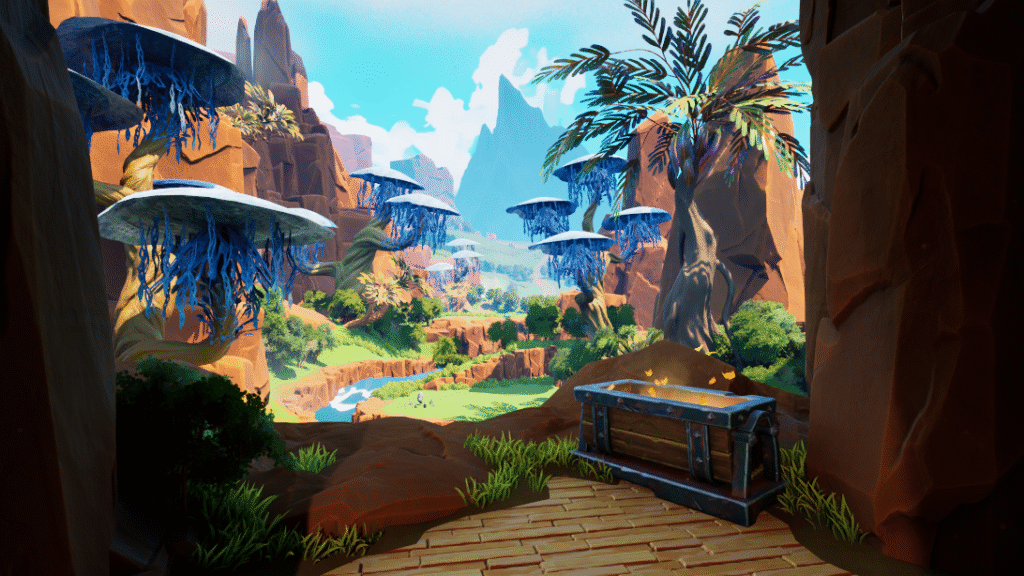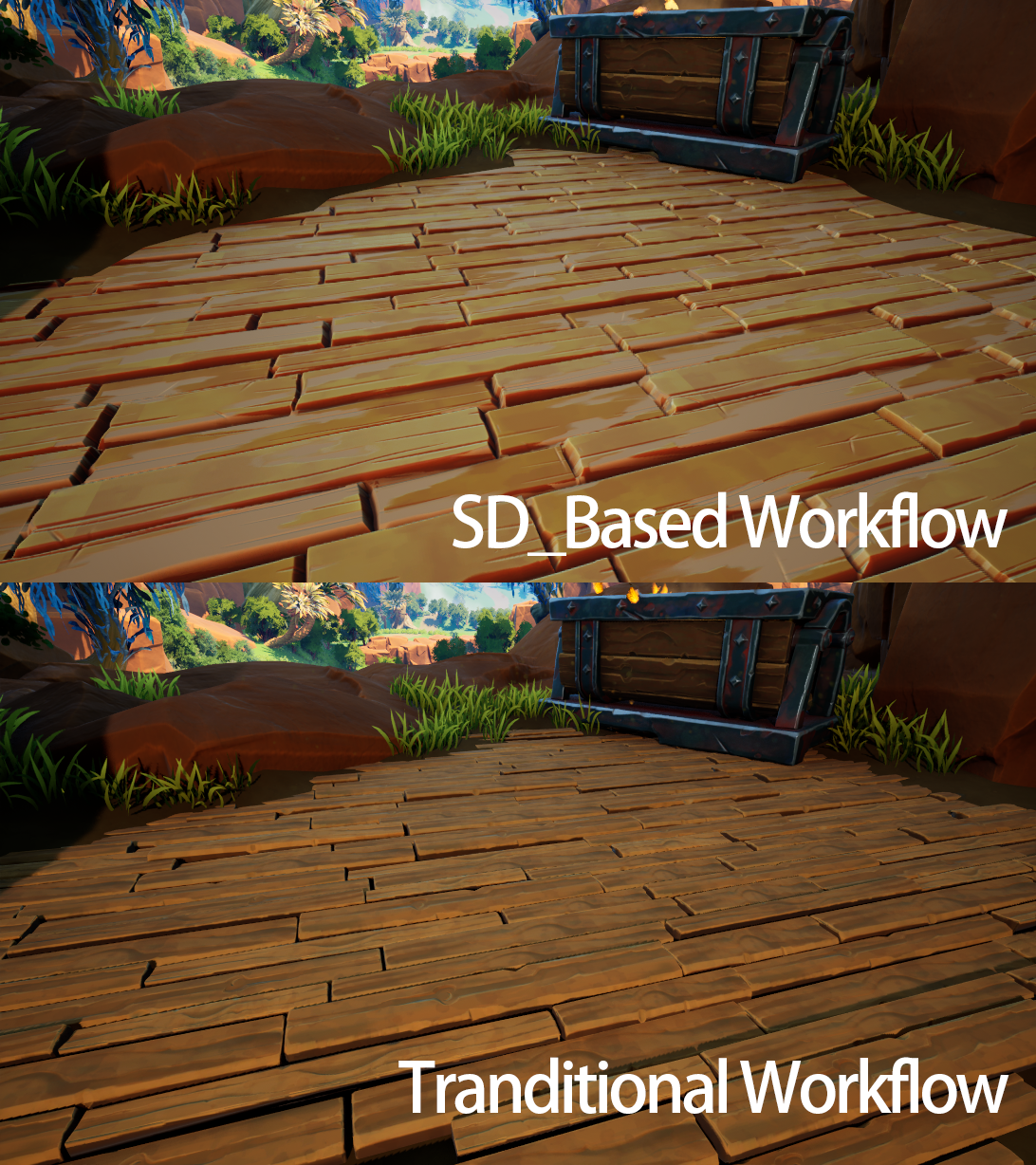MSc Serious Games & Virtual Reality School of Innovation & Technology
Yinjun Song

Contact

Procedural generation tools to optimize workflows
This study investigates the potential of Substance Designer (SD)-based procedural workflows to optimize material production in game environment design, comparing them directly with traditional hand-painted workflows. Motivated by the increasing demand for efficiency, scalability, and consistency in large-scale asset pipelines, the research adopts a mixedmethods “Design–Practice–Evaluation” approach, combining controlled case studies with participant surveys. A unified scene was developed using both workflows under identical artistic and technical conditions, enabling direct comparisons across efficiency metrics, model complexity, scene integration time, and visual quality. Quantitative analysis revealed that the SD workflow significantly reduced production and integration times while minimizing geometry requirements, primarily by embedding surface details into procedural materials. Qualitative feedback from environment artists emphasized SD’s strengths in reusability, rapid iteration, and cross-team parallelism, though it also introduced a steeper learning curve and occasional mechanical uniformity in output. Conversely, the traditional workflow excelled in artistic nuance and stylistic flexibility, albeit at higher labour costs. The findings suggest that SD-based workflows offer substantial advantages for large-scale and modular production contexts, while hybrid approaches can combine the efficiency of procedural generation with the organic detail of hand-painted techniques. This research contributes to workflow optimization strategies in modern game development, providing actionable insights for both technical artists and production managers seeking to balance speed with artistic quality.


